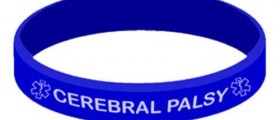
Dyscalculia is a type of learning disorder which is characterized by disabilities and difficulties in comprehending mathematics. This disorder is a consequence of improper functioning of the parts of the brain responsible for understanding mathematics. Dyscalculia does not affect cognitive functions in general. It is also known as Mathematics Disorder or Mathematical Disabilities.
A person can be born with this disorder or it can be a consequence of the head injury. Both children and adults can be affected by dyscalculia. It is estimated that dyscalculia occurs in 5 per cent of the world's population.
Dyscalculia is not a severe condition and the symptoms can be very mild. In some cases it can be just a delay in comprehension of the basic principles of counting, calculating addition, multiplication or subtraction. Other symptoms may include difficulties with comprehending time, especially with reading numbers on a digital clock. The person with dyscalculia can be always late or always early. There can be problems with finger counting and generally understanding numbers, for example comparing two numbers according to the quantity. The dyscalculia person would not know which number is the bigger, 6 or 8. There can be difficulties with writing numbers because the sense of quantity is decreased.
The dyscalculia person can also have problems with differentiating left and right. An estimation of how far an object is or what its dimensions are could be troubling. The decomposition of numbers is a problem. The people with dyscalculia have troubles understanding the price and estimating the overall cost of several items. This can be a problem if the dyscalculia person wants to check the change in a shop, write a check or generally manage the budget. The problems occur when a multi step calculation has to be performed. There are also difficulties with keeping scores during matches or games.
When it comes to reversing the numbers, the experts may disagree whether it is a symptom of dyscalculia or it is merely a stage in development. There are other symptoms which may be connected to dyscalculia but they do not always mean that the person has dyscalculia. These symptoms include difficulties to stay focused for a longer period of time, problems with short term memory, remembering names is a problem, difficulties with reading and reduced movement coordination.
The dyscalculia person may develop negative feelings towards mathematics which in extremely rare cases lead to anxiety disorders or phobia. The person with dyscalculia can be especially good in other fields such as literature or writing.

















Your thoughts on this
Loading...